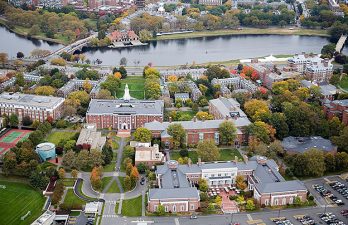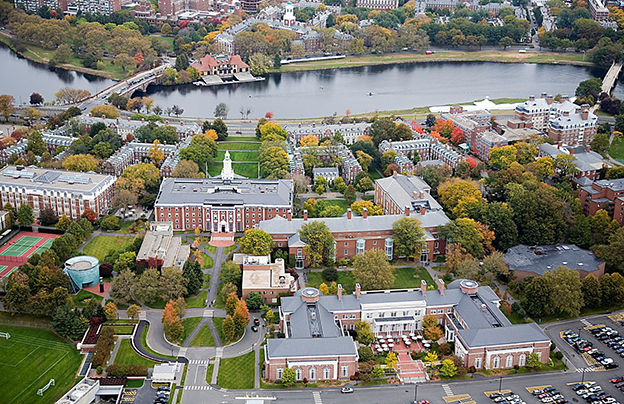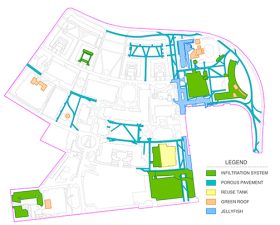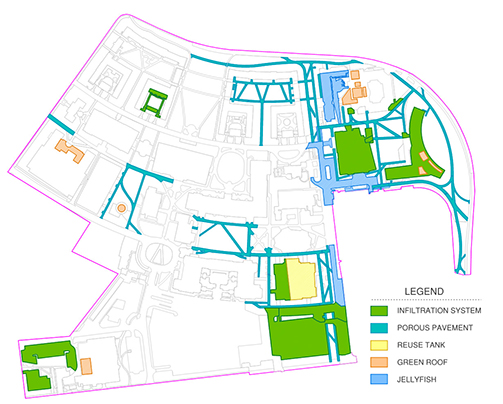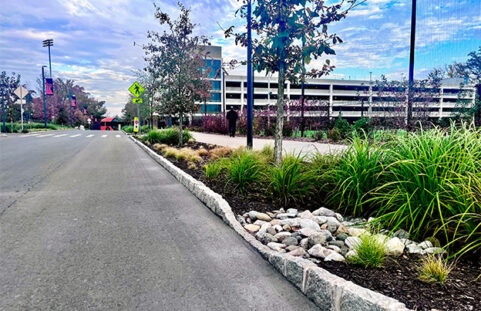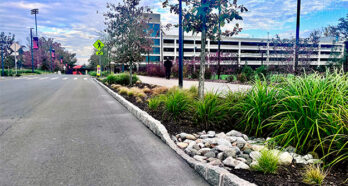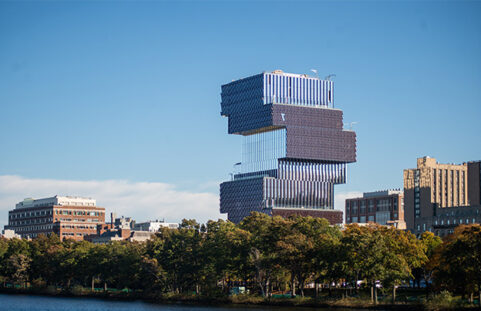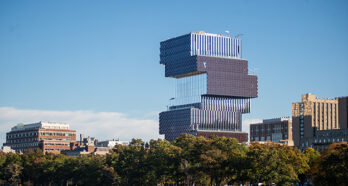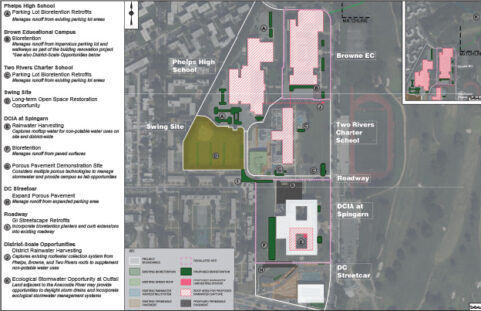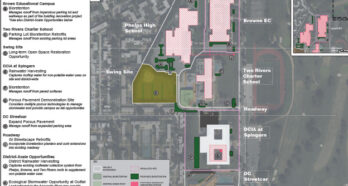Nitsch led the stormwater master planning effort for Harvard Business School’s (HBS’s) Master Plan Update. We coordinated with the master planning team to evaluate and develop a range of goals and alternatives for managing and implementing sustainable stormwater solutions for the Business School campus in the Allston neighborhood of Boston, located along the Charles River. The 2012 Stormwater Master Plan incorporates HBS’s Sustainability Goals; current sustainable initiatives such as LEED, ASLA’s Sustainable Sites, and the Living Building Challenge; along with existing and anticipated regulatory requirements.
Nitsch’s overarching goal was to assist the HBS campus in incorporating sustainable stormwater management strategies into their future development program. We analyzed the campus and developed a framework for managing stormwater that emphasizes Low Impact Development techniques such as rainwater harvesting, green roofs, infiltrative practices, porous pavement, bioretention, and amended soil techniques.
The 2012 Stormwater Plan demonstrated HBS’s leadership as a responsible developer in the Charles River Watershed. By establishing campus-wide stormwater management goals with measurable targets for managing stormwater on campus, HBS can achieve two traditionally contrasting initiatives: expanding the campus footprint while restoring the natural hydrologic regime. Nitsch worked closely with the environmental consultants to prepare a phased implementation plan to meet the campus-wide goals, using a two-pronged approach that includes achieving aggressive stormwater management targets for all new development projects; and implementing a series of structural and non-structural stormwater retrofit projects to existing campus infrastructure.
In 2016, Nitsch updated the 2012 Stormwater Plan and evaluated its effectiveness. Since the publication of the plan, HBS built a number of projects that incorporated the recommended performance standards. Even though HBS increased their impervious area on campus by about seven acres since 2012, alignment with the Stormwater Plan enabled a net positive outcome, with HBS decreasing their effective impervious cover by implementing capital improvements projects and campus-wide retrofits, including porous pavement paths and green roof retrofits. These efforts resulted in an 11% reduction in stormwater volume being discharged from campus
The updated 2016 Stormwater Plan documents areas to be managed for volume and/or treated for phosphorus by 2019. It also added a new campus-wide goal – to increase the “managed” impervious area on campus to 50% (near-term) and 75% (long-term) – to allow HBS to meet their phosphorus reduction goal:
As HBS continues to improve their campus, Nitsch will continue to work with them to achieve their stormwater goals. To date, we have provided civil engineering services for the implementation of Master Planning projects, including the Chao Center and Klarman Hall.
Key Collaborators
Owner: Harvard Business School
Environmental Consultant: Atelier Ten

